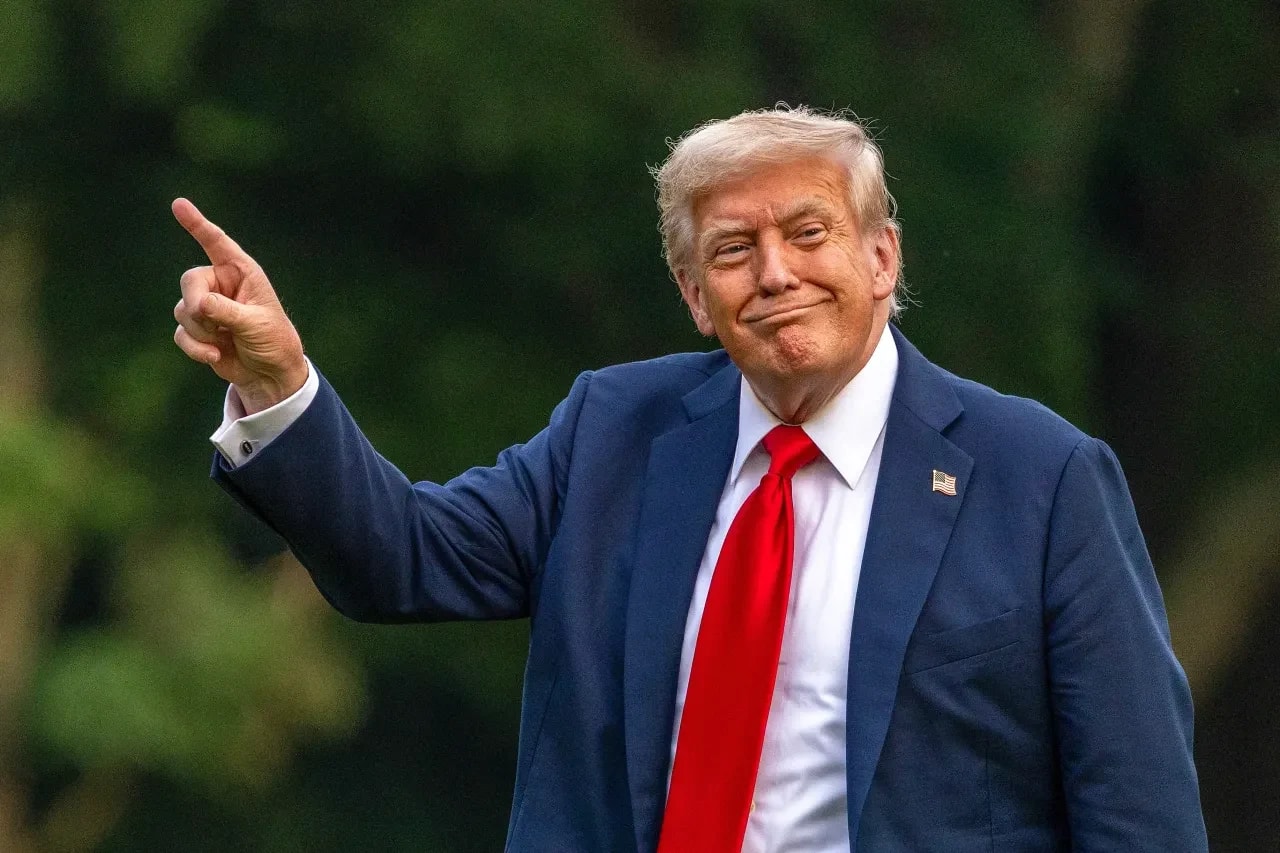Trump Claims U.S. Secures 'Biggest' Trade Deal With Japan — Nikkei Rises, Analyst Hails Ishiba's Victory

Major Trade Deal Between U.S. and Japan Sparks Market Reactions
On Tuesday night, news of a significant trade agreement between the United States and Japan emerged as President Donald Trump announced that a major deal had been finalized. This development came just before the August 1 tariff deadline, marking a pivotal moment in U.S.-Japan trade relations.
In a social media post, Trump described the agreement as the "largest" trade deal ever with a Group-7 ally. He highlighted that Japan would impose a 15% reciprocal tax on U.S. goods, a notable decrease from the 25% tariff he had previously threatened in a letter to Japanese Prime Minister Shigeru Ishiba earlier this month. This reduction was itself an adjustment from the original April rates under Trump's "Liberation Day" tariffs, which had been temporarily suspended to allow for negotiations.
The announcement led to a surge in Japanese markets, with the Nikkei 225 index rising more than 2.5% during early trading. Meanwhile, U.S. stock futures showed mixed performance. The SPDR S&P 500 ETF (SPY), which tracks the broader U.S. market, has gained nearly 8% this year. The iShares MSCI Japan ETF (EWJ) has seen an increase of over 9.5%.
Trump emphasized the significance of the deal in his post, stating, “I just signed the largest TRADE DEAL in history with Japan. We worked on it long and hard—It’s a great deal for everybody.” He mentioned that Japan would invest $550 billion in the U.S. at his direction, with Japan receiving 90% of the profits from the investment. The president also claimed the deal would create hundreds of thousands of jobs and open Japan’s market to U.S. trade, including cars, trucks, rice, and other agricultural products.
“This is a very exciting time for the United States of America, and especially for the fact that we will continue to always have a great relationship with the Country of Japan,” Trump said in his post.
Key Areas of Negotiation and Impact
The trade deal was reached after months of negotiations between the two countries, with the main points of contention being the liberalization of trade in automobiles and agricultural products. Japan, an export-oriented nation, derives a significant portion of its GDP from trade. The deal comes at a critical time for the ruling Liberal Democratic Party (LDP), which recently faced an electoral setback, losing a majority in the upper house. Despite this, Prime Minister Ishiba pledged to complete the deal.
Following the suspension of the initial tariffs, the U.K. became the only country to secure a deal with the U.S. After the extended Aug. 1 deadline, the U.S. announced a bilateral agreement with Indonesia, limiting the reciprocal tariffs to 19%.
Analysts were surprised by the Japan trade deal. Andrew Jackson, head of Japan equity strategy at Ortus Advisors in Singapore, noted that the deal was a positive development for Ishiba and the LDP, particularly given their recent challenges. He suggested that the 15% rate was a better outcome than the 20% that had been anticipated.
Sean Callow, senior FX analyst at InTouch Capital Markets in Sydney, expressed skepticism about the reported $550 billion foreign direct investment (FDI), calling it a “phantom number.” He also indicated that the dollar-yen pair would likely maintain its usual positive correlation with Japanese equities, potentially moving higher in the short term.
Positive Reactions in the Stock Market
The news of the trade deal positively impacted Japanese auto stocks. Toyota Motor saw its shares rise over 11%, Honda Motor jumped nearly 9%, and Nissan Motor advanced more than 8.5% in Tokyo trading.
As the U.S. and Japan move forward with this significant trade agreement, the implications for both economies remain to be fully realized. The deal not only signals a shift in trade policies but also highlights the complex interplay between political decisions and economic outcomes.
Post a Comment for "Trump Claims U.S. Secures 'Biggest' Trade Deal With Japan — Nikkei Rises, Analyst Hails Ishiba's Victory"
Post a Comment